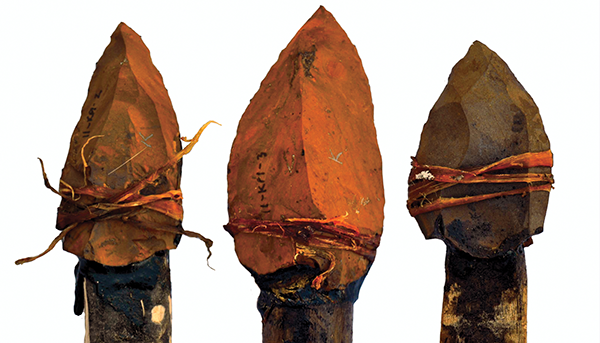
What can we learn about human development from chimpanzees and baboons?
Depending on the kind of environment our ancestors were living in, different animals lived alongside them. A great example of this is Hadar, the site where Lucy and other members of Australopithecus afarensis were found. There are three layers that hold fossils at Hadar. From oldest to youngest, those layers are the Sidi Hakoma, Denen Dora, and Kada Hadar.
The Sidi Hakoma is the oldest layer and was likely made up of woodland with some patches of forest. We know this based on the fossil animals, which include giraffes, monkeys, and a large number of forest antelopes. The Denen Dora is the middle layer. It contained wet grasslands around a big lake. In the Denen Dora, there were animals that live in places with lots of water and grass, including water-loving antelopes and hippos. The youngest layer is the Kada Hadar. The Kada Hadar was likely arid grassland and bushland based on the number of wildebeest-like antelope, gazelles, and warthog-like pigs found there.
Climate change impacted the plants that grew in the Hadar region as well as the animals living there. Some changes, though, were not caused by climate. For example, when our ancestors started eating meat, other meat-eaters, like lions and hyenas, had access to less meat because they had new competition for it. These carnivores were starved out of the area. Sometimes they were even driven to extinction.
Be Part of
Ask An Anthropologist
By volunteering, or simply sending us feedback on the site. Scientists, teachers, writers, illustrators, and translators are all important to the program. If you are interested in helping with the website we have a volunteers page to get the process started.

